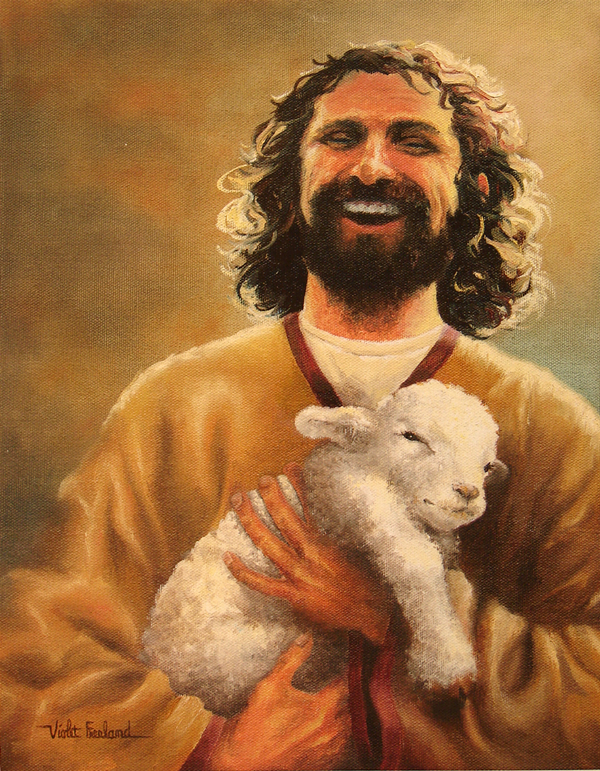(This is an exerpt from the fourth chapter of my soon to be released book, Grappling with God: The Battle for Authentic Faith. This chapter emphasizes the importance of learning how to feel and express anger powerfully and responsibly in all our relationships)
Jesus turned and said to Peter, “Get behind me, Satan! You are a stumbling block to me… (Matthew 16:22)
We believe at the Center for Christian Life Enrichment that to be in meaningful relationship requires consciousness—an awareness of what is true in the moment and the willingness to share yourself with another. To experience true intimacy with others, including with God, we must strive to be fully ourselves, to share what is true, especially where our emotions are concerned. If we focus on what we think to the detriment of what we feel, we will not accurately reflect our true selves. If we are out of touch with our emotions or always censure ourselves and what we feel in an attempt to put our best foot forward, others will sense that we are not fully present. We, too, will experience a lack, thus undermining our ability to understand ourselves and to engage in alive and spiritually mature relationships with others and with God.
We may mistakenly believe that keeping a tight rein on our feelings will make us appear more rational, even-tempered, and likeable. When we deny our feelings or stuff them away, however, we cut ourselves off from an essential source of information about ourselves and our interactions with others. Our feelings ground us in the here and now. They reflect an immediate understanding of what is happening within us in the moment. To become more Christ-like—meaning fully alive, authentic, and present in the moment—we need to have full access to our feelings as well as our thoughts. Only when we can feel our feelings and express them to others, connecting heart to heart, are we able to experience life on a much deeper and more meaningful level.
At first, we may have an easier time experiencing and expressing with what we perceive to be positive emotions. The first three on the SASHET spectrum (sad, angry, scared, happy, excited, and tender) may make us uncomfortable or even wary. We tell ourselves that expressing happiness or tenderness is acceptable, but sadness and fear must be in moderation, and anger is usually not acceptable. We judge certain emotions to be “good” and others to be “bad.”
All our emotions, however, are gifts from God and resources to help us live our lives to the fullest. Our anger, sadness, and fear are just as important as the happiness, excitement, and tenderness we feel. Whether we feel anger or tenderness, it is all valuable information that helps further our relationships. In the cockpit of an airplane, there are many instruments and gauges, the function of which may not be known to us. However, to a trained pilot, each one is crucial: some to be looked at every second and others only needed in an emergency.
Feelings are the instruments in our cockpit, yet many people fail to recognize their importance, mistakenly thinking that the gauges measuring our thoughts are all-sufficient. As Christians, many of us have learned to fear our emotions, in particular the one we will focus on in this chapter: anger.
Because of the way we have been raised, we may have mistaken beliefs around anger, perceiving it as hurtful, abusive, mean, and even dangerous. We recall Paul’s advice to the Colossians to rid yourselves of all such things as these: anger, rage, malice, slander, and filthy language from your lips (Colossians 3:8), and see anger as morally wrong. At first glance, it would seem that the advice of this chapter to “honor our anger” contradicts the teaching of scripture. While I agree with the spirit of Paul’s teaching, I disagree with how it has been used in the church to limit and manage people’s aliveness. I will show that our anger is power and, although power can be misused, it is an essential resource if we are truly intent to be becoming more like Christ (please read Grappling with God when it is released for the whole story).
As spiritually mature followers of Christ, we must learn how to experience our anger and express it in such a way that empowers us and deepens our relationships. It seems paradoxical: using anger to nurture our relationships with others and with God, since many of us consider this emotion to be as cutting as a knife and perhaps just as deadly. There is, however, great risk to ourselves and to others when we stifle our anger. Unexpressed anger builds until we are like volcanoes, ready to explode. In contrast, anger that’s recognized and processed in the moment, and then expressed in a responsible and mature way, clears the air and opens the lines of communication with our spouse, family members, friends and associates—and also with God. If we are going to have a spiritually mature and alive relationship with God, we need to drop our pretenses and “get real” about what we feel. Only by admitting to ourselves and to others, including God, when we are angry can we reach a level of comfort and genuineness that leads to true intimacy.







